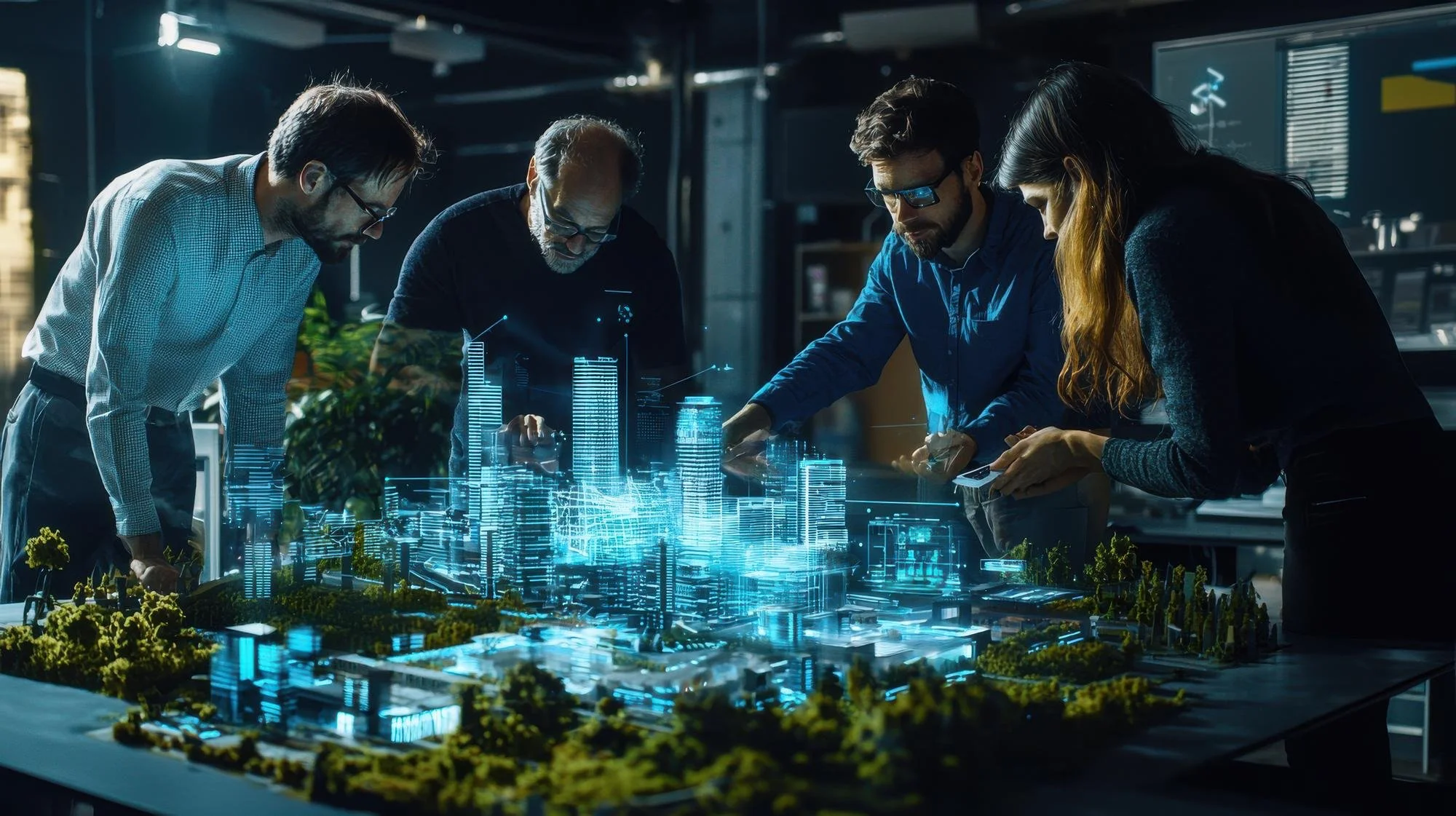
Digitalization for a Novel Triad of Design, Fabrication, and Materials
DigiTrio unites 10 ambitious projects, including AM2PM project, funded under the EIC Pathfinder Challenge, each exploring the transformative potential of digitalisation within the Architecture, Engineering, and Construction (AEC) sector.
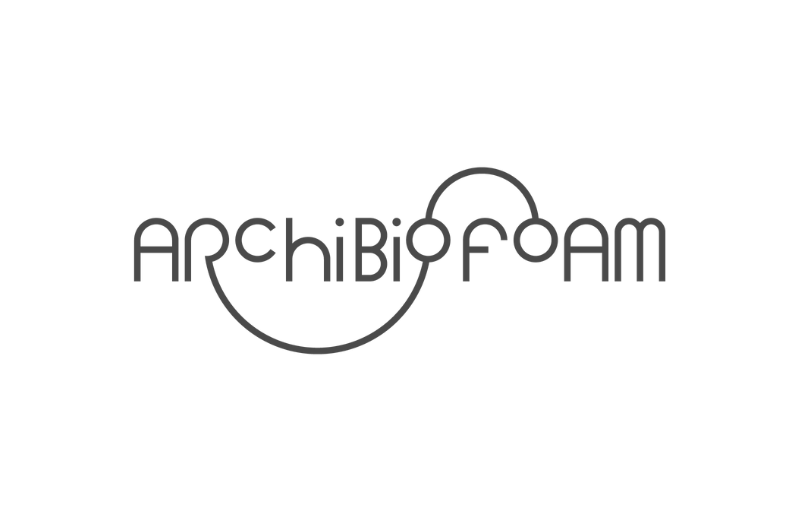
ARCHIBIOFOAM
ARCHIBIOFOAM develops shape-shifting, load-bearing systems for sustainable architecture by combining biobased materials, computational design, and robotic 3D printing.
The project creates single-material biofoams with customizable properties that respond to temperature and humidity. These recyclable, compostable materials eliminate the need for layered construction, reducing carbon emissions and promoting circular building practices.

SCENE B
SCENE-B promotes sustainable construction through aluminium fibre-reinforced concrete designed for 3D printing, supporting the values of the New European Bauhaus.
By integrating additive manufacturing with digital tools and automation, the project cuts material waste, speeds up construction, and enables complex architectural forms—enhancing efficiency, safety, and environmental performance across the building lifecycle.

UNIVERSAL TIMBER SLAB
Universal Timber Slab develops a novel point-supported timber floor system for multi-story buildings, combining computational design, robotic fabrication, and AI-augmented tools.
Created by a multidisciplinary team from the University of Stuttgart, the project enables fully parametric, material-efficient timber construction with slabs that are up to 30% slimmer than conventional alternatives. Its integrated digital pipeline offers design flexibility previously only achievable with reinforced concrete.
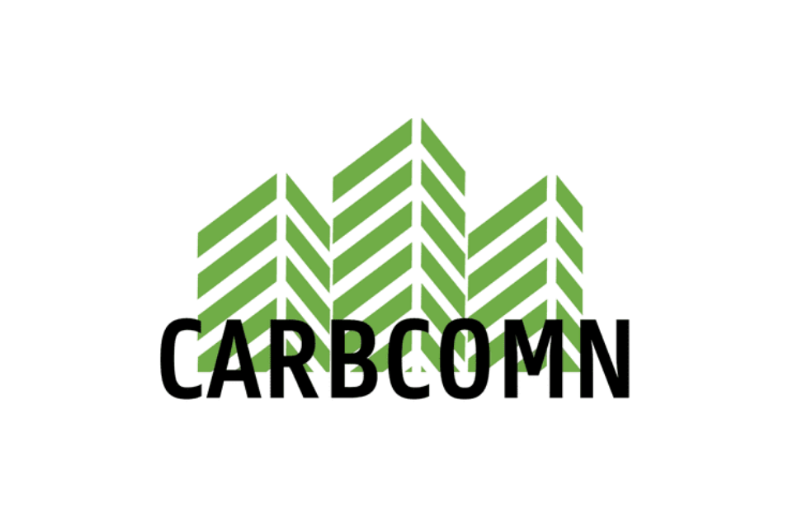
CARBCOMN
CARBCOMN creates carbon-negative construction system for load-bearing concrete structures by combining digital design, CO₂-sequestering materials, and modular, demountable components to drastically reduce greenhouse gas emissions and raw material use.
By developing an innovative digital pipeline and ensuring durability, circularity, and compliance with building standards, the project aims to inspire sustainable architectural practices and demonstrate full life cycle environmental benefits.

RAW PROJECT
RAW pioneers a new resource model for architecture by integrating waste-sourced and fast-growing bio-based materials into computational design and fabrication workflows.
By embracing the natural variability of circular materials, the project enables adaptive, non-prescriptive design methods that break free from the constraints of standardised industrial resources. This approach opens up new possibilities for sustainable construction while reducing waste and increasing carbon storage in buildings.
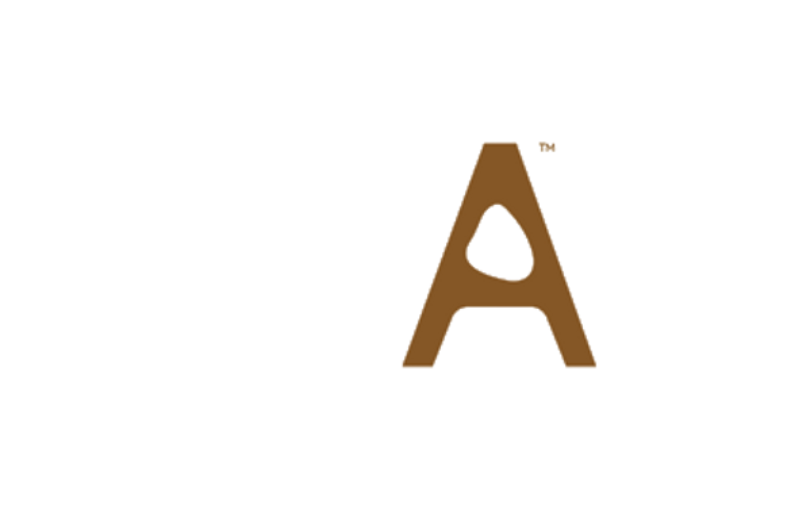
Algo Loam
AlgoLoam develops fully biodegradable loam walls reinforced with algorithmically generated 3D natural fibres to create lightweight, self-supporting structures.
By combining traditional earth-building techniques with digital design and sustainable materials, the project reduces embodied emissions and construction waste. AlgoLoam promotes circular, low-impact architecture for healthier and more resource-efficient built environments.
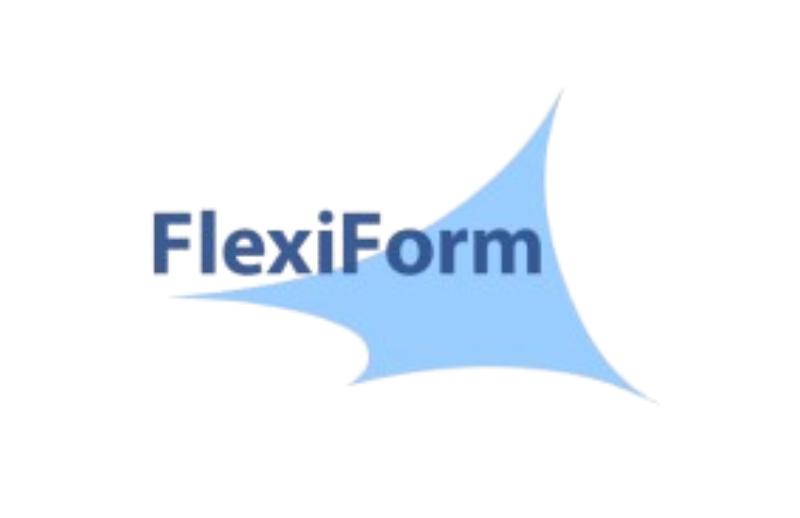
FlexiForm
FlexiForm reduces material use and embodied carbon in concrete structures by combining double-curved geometries with lightweight 3D-knitted textile formworks.
The project develops an integrated digital workflow for design and fabrication, optimizing structural performance and material efficiency. By creating an open-source material database and form-finding tools, FlexiForm supports the adoption of sustainable, innovative construction aligned with the European Green Deal.

STACK
STACK pioneers a mathematical framework and computational design tools for freeform surface stackability, enabling advanced digital fabrication methods such as hot blade cutting.
By combining 3D elastica theory with innovative design-to-fabrication workflows, the project pushes the boundaries of architectural geometry and sustainability.
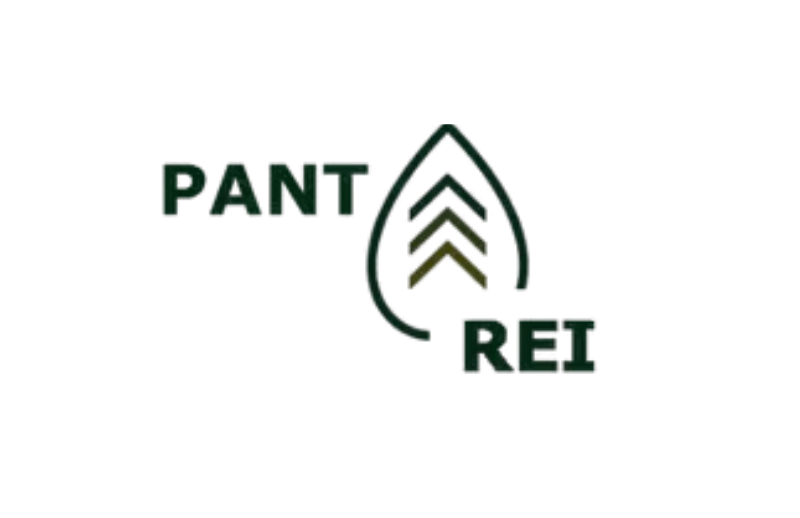
PLANTAREI
PLANTAREI develops biowaste-derived building panels using advanced digital tools to reduce embodied CO₂ and improve thermal performance.
By introducing a pioneering thermodynamics-based computational tool, the project enables the design and assessment of novel metamaterials across their life cycle. Funded by the EIC, PLANTAREI paves the way for sustainable, human-centred construction solutions.
About
Together, we form a strategic research ecosystem to reshape how buildings and structures are conceived, built, and perform.
DigiTrio promotes collaboration across disciplines and borders, offering unique opportunities to build future value chains, strengthen industrial partnerships, and accelerate commercialisation potential through joint portfolio activities.
DigiTrio is a dynamic platform for innovation at the intersection of science, technology, and architecture, advancing sustainable and intelligent solutions for the built environment.
Goals
As a portfolio, DigiTrio is committed to advancing sustainable construction through shared goals such as reducing embodied CO₂, improving buildability and enabling predictive design and manufacturing.
We aim to demonstrate measurable carbon reductions, support smart construction planning, and establish scalable, environmentally responsible practices across the AEC sector.
Reducing Embodied CO₂
Lower embodied carbon in materials and construction
Improving Buildability
Enhance construction
efficiency and feasibility
Enabling Predictive Design
& Manufacturing
Use data-driven methods
for design and prefabrication


